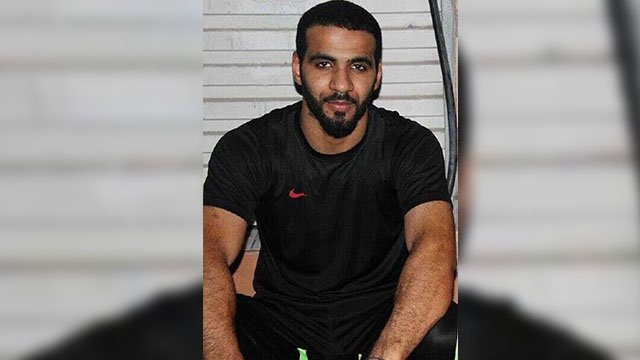Mohsen Ali Baddaw, a Bahraini graduate from the Bahrain Training Institute, was only 24 years old when authorities arrested him from his fiancee’s house in 2015. He was tortured and convicted of multiple terrorism-related charges through unfair trials conducted in absentia or using confessions produced under torture.
On 2 April 2015, the house was surrounded by police cars, and a huge number of police officers, Commandos forces, civilian officers, and state security officers were all over the area. Mohsen was with his sister on the line at that time and heard the police officers through the phone. He went to the window and saw the officers, so he tried to escape but was caught and beaten. Mohsen was warrantlessly arrested and placed in a police car.
Before Mohsen’s arrest, his home was raided by Bahraini forces several times, and summons were sent for him to appear before the relevant authorities. He was convicted in several cases, many of which were not communicated to him. Mohsen was wanted before the arrest but did not have information about all the rulings and charges against him.
After his arrest, Mohsen was able to call his family and inform them that he was at the investigation building. However, he was forcibly disappeared for the 15 days which followed. During the interrogation at the CID in Adliya, Mohsen was subjected to different forms of torture, causing him to faint and be transferred to the military hospital on the first night of the interrogation. He was insulted, verbally abused, and severely beaten. The interrogation lasted 2 weeks, and his lawyer was not allowed to be present. Mohsen confessed under torture, and the confession was used against him in trials held after his arrest. When his family visited a month and a half after his arrest, they noticed bruises and marks on Mohsen’s body, but he did not tell them anything.
Mohsen was convicted in more cases after his arrest, and the total of his sentences has reached 4 life sentences (130 years) on charges related to illegal assembly, possession of explosive materials, assault of a public official, detonation of a bomb, among others. He was brought before a judge several months after his arrest. During the court sessions he attended, he was not allowed to provide evidence and could only insist that he is innocent.
The outbreak of Coronavirus in Jau Prison, where Mohsen is currently held, has raised much concern among prisoners and their families. Mohsen had faced multiple health-related issues due to the unsanitary and overcrowded conditions in prison, such as contracting scabies and the spread of allergies on his leg in 2019. Despite repeated requests from the family to provide him with medical care, Mohsen suffered for more than 6 months without any treatment. Additionally, the torture he was subjected to during the events of Jau Prison in 2015 left him eyesight problems. Although the administration had scheduled an appointment for treatment at the Salmaniya Hospital, it was cancelled due to the pandemic. In light of this track record of medical negligence, the risks of Coronavirus are high.
On 17 April, riot police forces attacked prisoners in Buildings 12, 13, and 14 in Jau Prison, and many of the prisoners were injured. This attack was an act of reprisal against the prisoners who were protesting the inadequate prison conditions and punitive measures implemented against them in Buildings 12, 13, and 14, such as prohibiting calls and holding prisoners in their cells for 24 hours per day. Mohsen is held in Building 14. As such, his family have repeatedly communicated with the prison administration and Ministry of Interior but did not receive a response. They have also submitted many complaints to the Ombudsman Office and organized a demonstration demanding the fate of the prisoners of Buildings 12, 13, and 14 be disclosed after contact with them was cut off as well as condemning the statement of the Ombudsman Office which denied the fact that prisoners are prohibited from calling their families. On 28 April 2021, Mohsen’s family confirmed that they have not heard from him or received any information about him in 23 days, which further heightens their concerns.
Mohsen’s arrest, disappearance, denial of access to his lawyer, and torture constitute violations of Bahrain’s obligations under the Constitution and international law, namely the Convention against Torture and Other Cruel, Inhuman or Degrading Treatment or Punishment (CAT) and the International Covennant on Civil and Political Rights (ICCPR). As he was arrested without a warrant and was not granted a fair trial under international standards, Mohsen Baddaw was arbitrarily detained by the Bahraini authorities. Moreover, the punitive measures against prisoners and the denial of calls with their family is in violation of the UN Standard Minimum Rules for the Treatment of Prisoners (Mandela Rules). ADHRB therefore calls upon the Bahraini government to grant Mohsen a fair retrial that respects international judicial and evidentiary standards, in addition to investigating the allegations of torture to coerce a confession and the attack in Jau Prison with a view of holding perpetrators accountable. Further, ADHRB urges the prison administration to provide Mohsen with appropriate medical care. Finally, ADHRB reiterates the demands of the concerned families of prisoners in Buildings 12, 13, and 14 for the families to be informed of the prisoners’ wellbeing and whereabouts and be allowed to contact them regularly.





